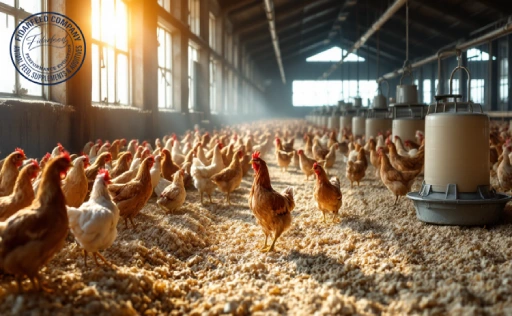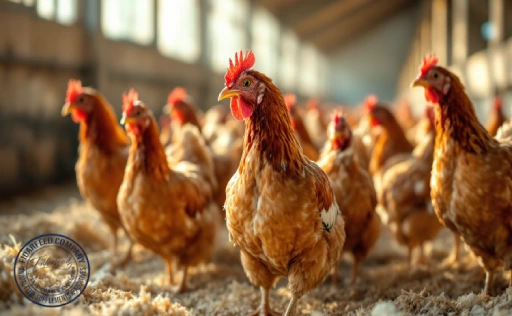
How Do Sheep Help Farmers? This simple question unlocks a world of possibilities. Whether you’re a seasoned sheep breeder or someone just entering the livestock industry, understanding the full value of sheep can reshape how you think about farming. These humble animals are more than just woolly grazers—they are dynamic contributors to agricultural sustainability, profitability, and community development. In this essential guide, we’ll dive into practical insights backed by real-world examples and research, revealing how sheep can truly elevate your farming journey. So, grab a cup of coffee and let’s explore why sheep might just be one of the most valuable assets on the farm.
How Do Sheep Help Farmers Beyond Wool Production?
When people think of sheep, wool often comes to mind first. But in today’s farming landscape, sheep offer so much more. In addition to wool, they provide meat, milk, manure, and even landscape management. Sheep are multipurpose animals that can be integrated into a variety of farming systems. For example, sheep meat—particularly lamb and mutton—is in high demand worldwide, offering farmers an excellent source of income. Their manure is rich in nutrients and serves as a natural fertilizer, promoting healthier crops without synthetic chemicals.
Learn more about: TMR Silage Animal Feed
Scientific studies from institutions like the FAO highlight how small ruminants like sheep are key in developing diversified, resilient farming models. By incorporating sheep, farmers can balance crop cycles, manage land naturally, and add financial stability to their operations.
How Do Sheep Help Farmers Increase Profits on the Farm?
Financial returns from sheep farming come from more than just selling wool or meat. Sheep allow farmers to diversify revenue through breeding programs, dairy products, lanolin extraction, and even agro-tourism activities.
Learn more about: The Complete Guide to Sheep Farming for Beginners
For example, specialty cheese made from sheep’s milk—like Roquefort or Pecorino—is highly valued and can generate significant profit. Breeding programs offer a steady stream of income as well, especially when working with desirable genetic lines that offer disease resistance or better growth rates. In regions like New Zealand and parts of Europe, small-scale sheep farms are thriving due to smart business models that combine meat, milk, and wool sales.

The Role of Sheep in Sustainable Agriculture
Sustainability is more than a buzzword—it’s a necessity. Sheep naturally align with sustainable farming practices. Their grazing habits reduce the need for mechanical mowing, lower carbon emissions, and limit herbicide use. Unlike larger livestock, sheep have a smaller environmental footprint, making them ideal for regenerative agriculture.
Learn more about: How to Treat Ringworm in Sheep and Lambs: A Complete Guide
Research published in the Journal of Environmental Management confirms that integrating sheep into crop-livestock systems enhances biodiversity, reduces soil compaction, and encourages natural nutrient cycling. Sheep essentially help “close the loop” on farms by producing waste that becomes input for crop production.
Natural Lawn Mowers: How Sheep Manage Pastures Efficiently
One of the most overlooked roles of sheep is as eco-friendly land managers. Sheep graze evenly and can be guided to control vegetation in pastures, orchards, vineyards, and even solar farms. This not only maintains pasture health but also reduces the cost and labor of mowing and weed control.
Learn more about: The Complete Guide: How to Run a Successful Sheep Farm
Vineyard owners in California have used sheep to graze between rows of vines, where machinery can’t easily go. This practice has saved time, fuel, and labor costs while keeping the soil structure intact. It’s a win-win for farmers who want to cut operational costs while maintaining a clean and fertile pasture.

Sheep and Soil: Improving Land Fertility with Grazing Animals
Healthy soil is the foundation of a productive farm. Sheep play a key role in maintaining and improving soil quality through rotational grazing. When managed correctly, their manure adds organic matter to the soil, enhancing microbial activity and boosting long-term fertility.
Learn more about: How to Control Internal Parasites in Sheep: Best Practices
Rotational grazing systems also prevent overgrazing and encourage the regrowth of grass species, supporting a more diverse plant ecosystem. A study by the USDA found that land managed with sheep rotation had higher water retention and organic matter compared to land without grazing animals.
Sheep Breeding: A Strategic Tool for Farm Growth
Selective breeding is more than just increasing flock numbers—it’s about improving flock quality. Farmers who strategically breed for traits like wool quality, growth rate, parasite resistance, and milk yield see stronger returns over time.
Investing in high-quality rams and ewes leads to healthier lambs and fewer veterinary costs. Tools like EID (Electronic Identification) tags and genetic testing allow breeders to track performance and make data-driven decisions that support long-term growth and productivity.

How Sheep Help Small-Scale and Beginner Farmers Succeed
Sheep are ideal for those just starting out. They’re smaller and easier to handle than cattle, require less space, and have lower feed costs. Their calm temperament and manageable nature make them perfect for families, homesteaders, or those transitioning into livestock.
Learn more about: Dorper Sheep Farming: Producing High-Quality Meat for Maximum Profit
Many government programs and co-ops offer support for new sheep farmers, including access to training, grants, and breeding stock. With a modest initial investment, even beginner farmers can build a profitable and sustainable operation.
From Milk to Meat: Valuable Products Sheep Provide
Sheep produce a variety of goods with strong market demand. Sheep’s milk, for instance, is richer in fat and protein compared to cow’s milk and is prized for artisanal cheese production. Lamb is a staple in many cuisines around the world, offering seasonal revenue peaks, especially during religious holidays.
Learn more about: Solving Rumen Health Problems in Sheep with Probiotics
Wool from certain breeds, like Merino, fetches a premium price due to its softness and thermal qualities. Even by-products like lanolin—used in cosmetics—add another layer of profitability. A single animal, when fully utilized, can generate income across several verticals.

Sheep as Companions: Stress-Free, Low-Maintenance Livestock
Compared to other livestock, sheep require relatively low maintenance. They don’t need elaborate shelters, and with proper fencing and regular health checks, they thrive with minimal intervention. They are docile, easy to herd, and rarely aggressive, which makes handling them safer and less stressful—especially important for families or older farmers.
Learn more about: Mitigating Heat Stress in Sheep: Practical Solutions
Their calm demeanor also allows them to coexist peacefully with other animals like chickens, cows, and goats, making them an excellent addition to mixed farms.
How Do Sheep Help Farmers in Harsh Climates and Remote Areas?
Sheep are resilient. They adapt well to both hot and cold environments and can graze on rugged or uneven terrain where other livestock struggle. This makes them invaluable for farmers in mountainous regions, semi-arid zones, or remote areas with limited infrastructure.
Learn more about: Comprehensive Beginner’s Guide to Sheep Farming
Breeds like the Awassi (Middle East) or Navajo-Churro (U.S.) have evolved to survive and thrive under harsh conditions, offering both endurance and economic value.

Community and Cultural Benefits of Sheep Farming
Sheep farming isn’t just about economics—it’s also about culture, heritage, and community. In many rural areas, sheep herding is a tradition passed down through generations. It strengthens community ties and supports local economies.
Learn more about: Suffolk Sheep: Unlocking Success in Meat Sheep Farming
Events like wool festivals, sheepdog trials, and livestock shows bring people together, celebrating rural life while also providing marketing opportunities for farmers. These traditions help preserve agricultural knowledge and attract younger generations to the profession.
Final Thoughts: Why Every Farmer Should Consider Raising Sheep
Whether you’re running a large-scale operation or just starting out, sheep offer unmatched versatility, profitability, and sustainability. From their role in pasture management to their value in diversified farm income, sheep prove to be more than just animals—they are strategic partners in success.
If you’ve been thinking about expanding your livestock or starting a new agricultural venture, sheep are a smart, practical, and rewarding choice.
We’d love to hear from you! What has your experience been like with sheep on your farm? Share your thoughts, ask questions, or leave a comment below. Let’s keep the conversation going and build a stronger farming community together.



